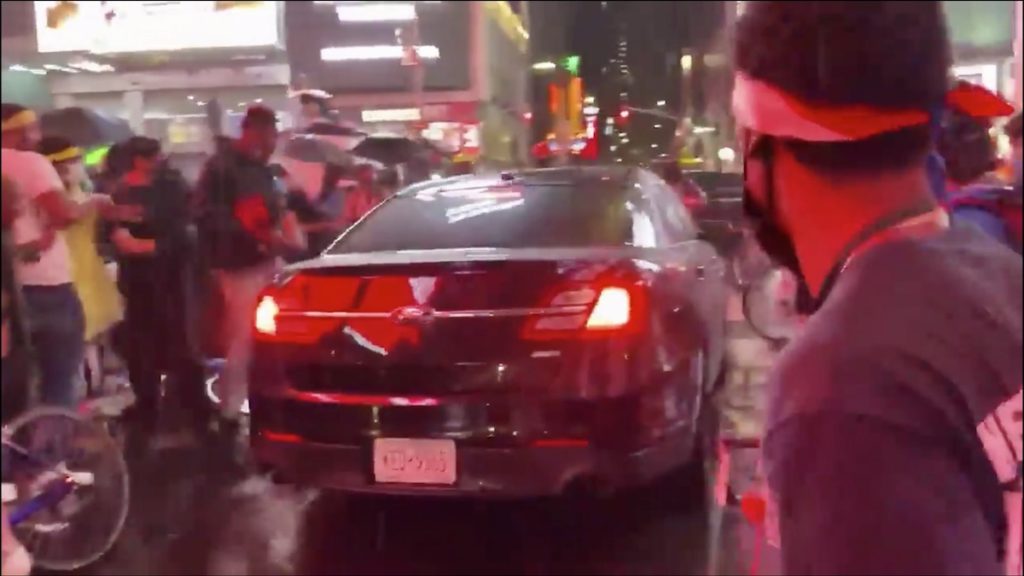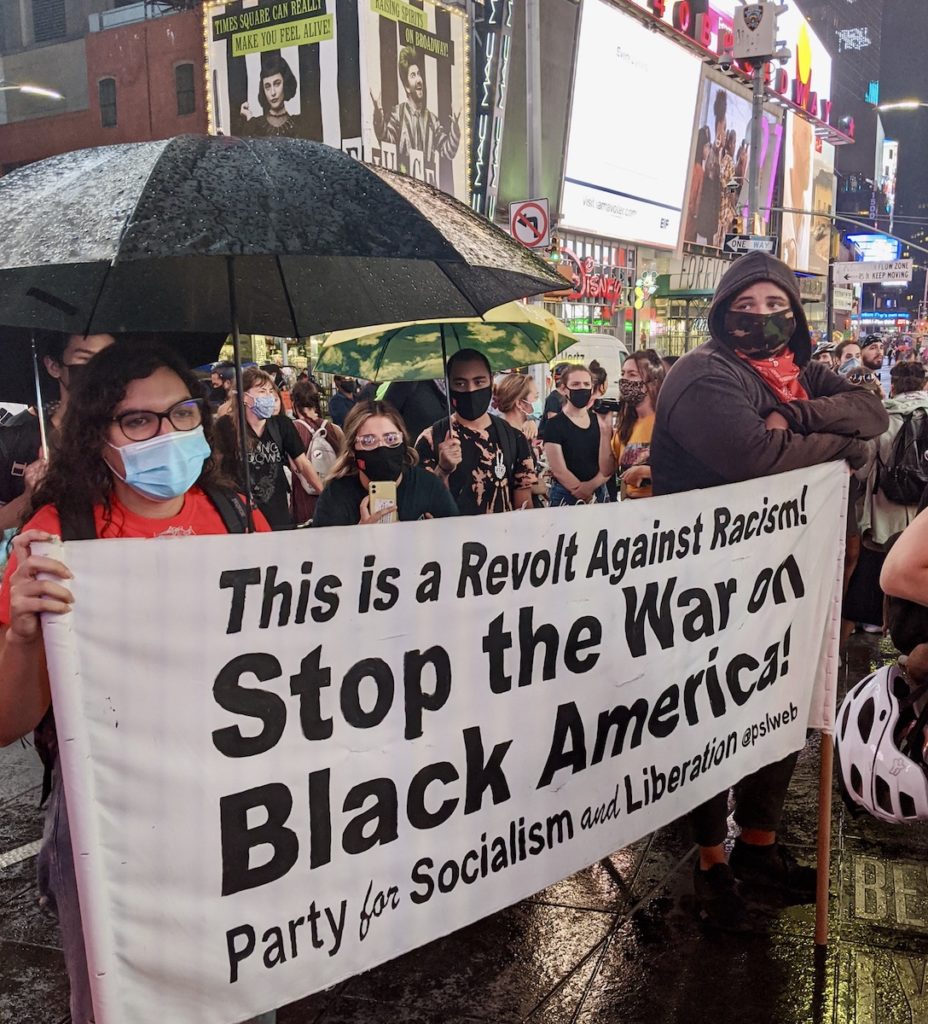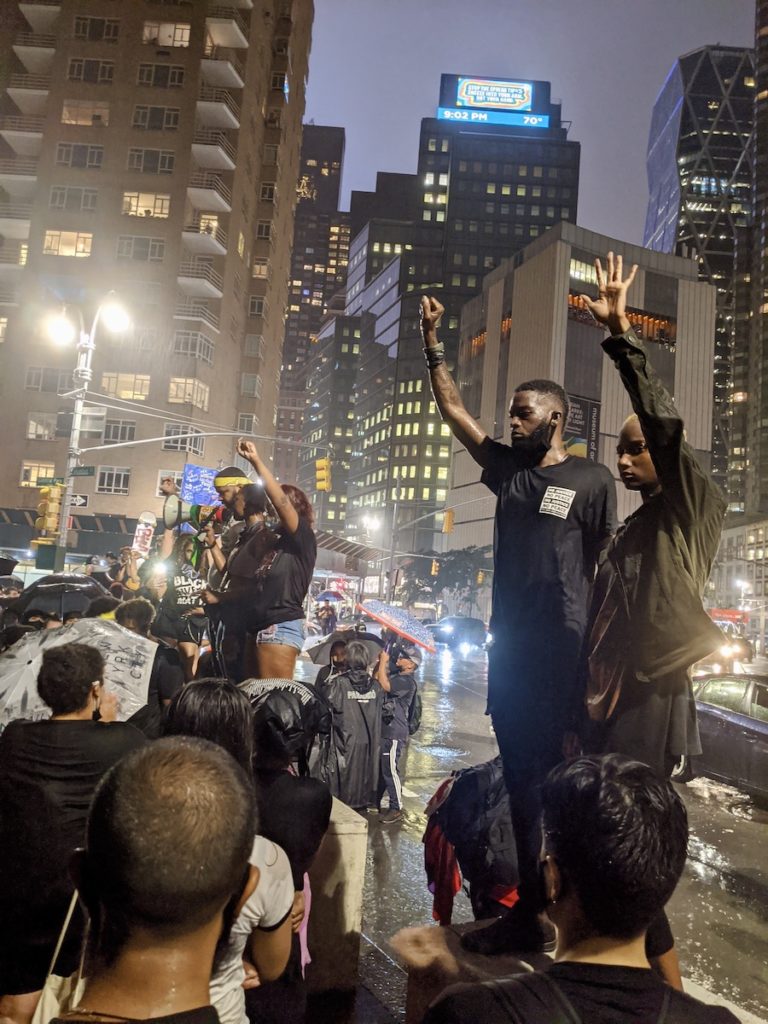On Sept. 3, protesters in New York City’s Times Square calling for justice for Daniel Prude were plowed into by unmarked police car. The vehicle drove directly through the protest, injuring several.
Moments before the attack, New York City Police officers were videoed escorting a pro-Trump counter-protester into the same car.

A protester who was hit in the hand by the car described to Break Through News the lack of reaction to this assault by vehicle from the two dozen police offers standing nearby: “They don’t care. They’re mad, they’re trying to stop us protesters, and they still gonna try to do what they wanna do. … We cannot take it no more, we gotta take a stand.”

This blatant display of fascist and police collaboration is not shocking to many, given its long history of racist murder and brutality, and the NYPD union’s recently backing of Donald Trump, its first presidential endorsement in 36 years.
The protest was called to demand justice for Daniel Prude, who was killed on March 30. Seven Rochester, NY, officers were involved — medical examiners ruled his death a homicide by asphyxiation. While his death took place in late March, two months before George Floyd’s killing, the family only recently decided to release video footage to disprove the police narrative.
Daniel Prude was psychologically distressed and in need of mental health support, which led to his brother Joe Prude calling for help. “I placed a phone call for my brother to get help. Not for my brother to get lynched,” Joe Prude told media.

After the car attack at the NYC protest, protesters then took over Eighth Avenue and marched towards Columbus Circle. Organizers made sure to pause and slow down so that all who were marching remained close together. Rows of bikers also helped to protect protesters. Led by Black and LGBTQ organizers, the action amplified the systemic violence felt by Black and Brown communities. The rally was one of many that has been met with increased police brutality and a rise in right-wing attacks on protesters.
The demonstration reflected the shifting consciousness regarding the police brutality epidemic in this country. “Reforms are not enough. Reforms will not end police brutality. We need to defund the police, abolish the police, and replace the police with an alternative that works for us,” exclaimed one of the organizers.
While protests here have been demanding a defunding of the police for months, nothing has changed. Not a single politician has truly listened to the demands. More and more people who have taken to the streets are concluding that it’s not the politicians, but rather sustained action and working-class organization that will result in the power and strength needed to create the alternative system we deserve.





